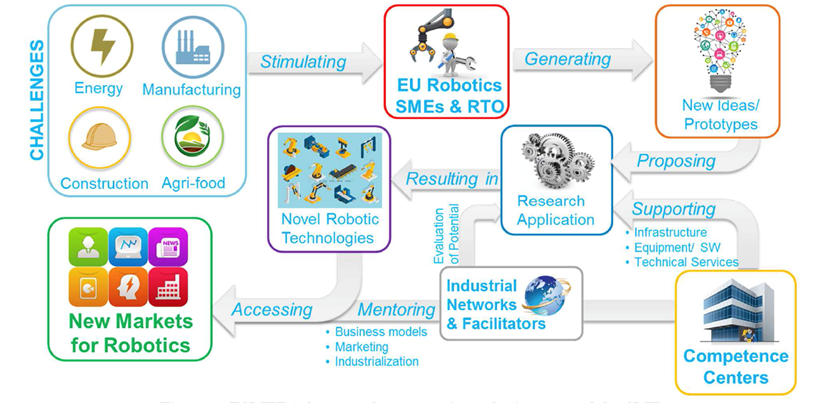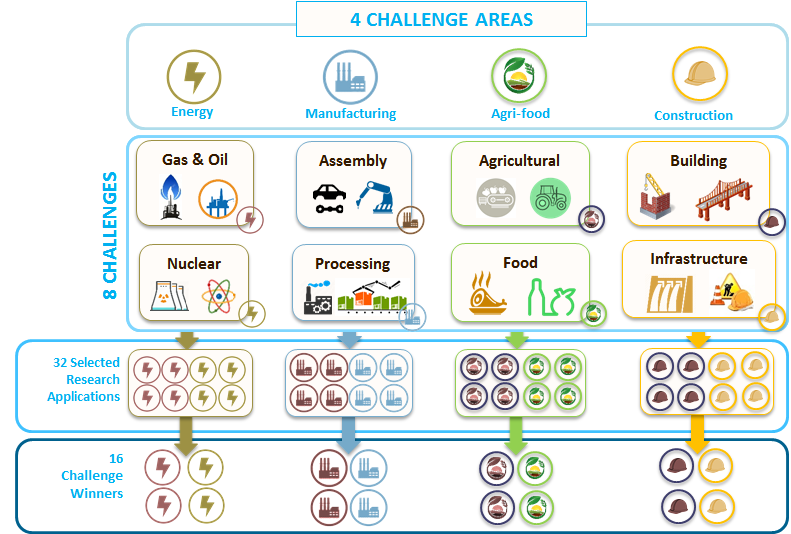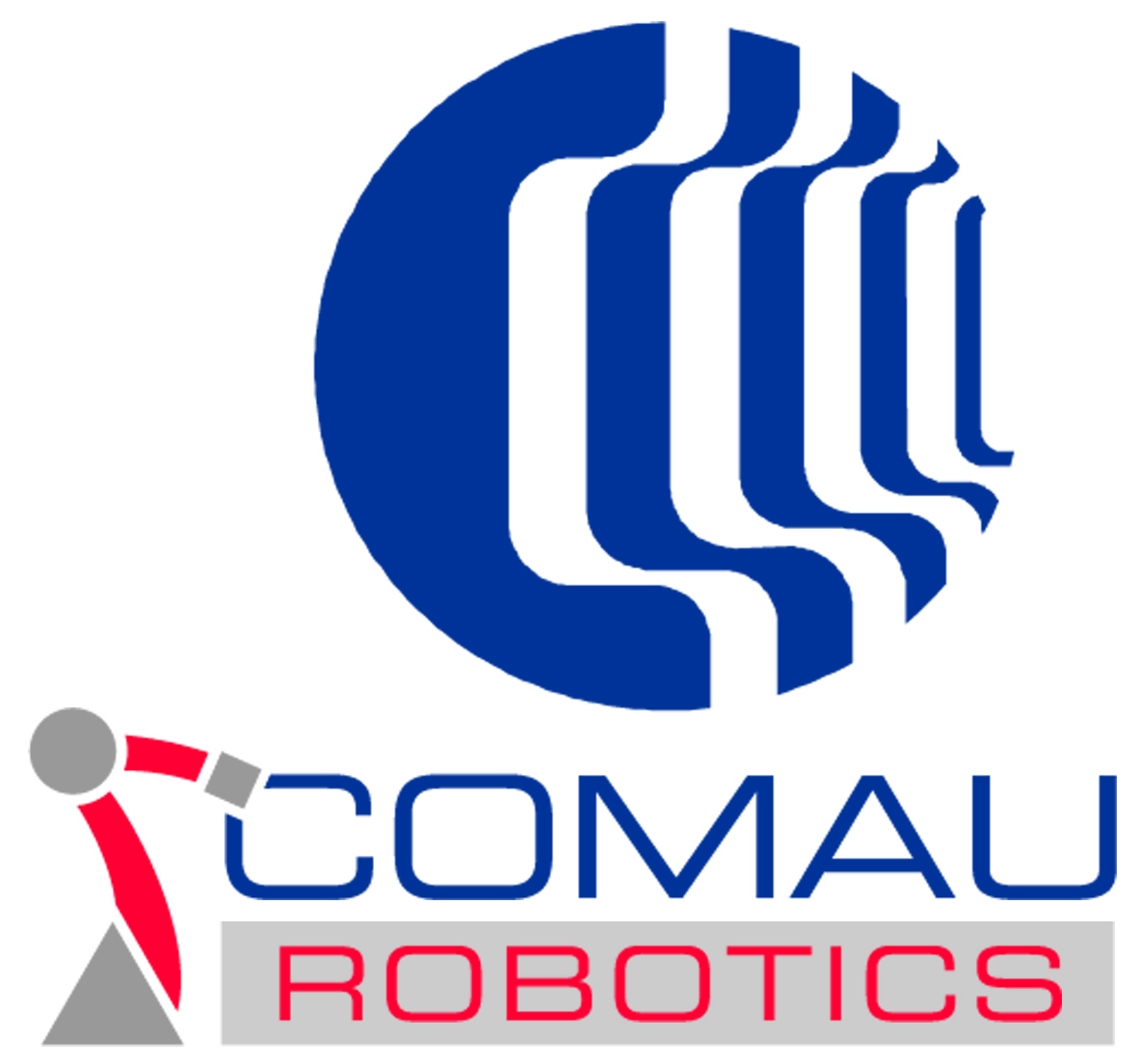
The Project
ESMERA aims to support EU SMEs in materializing, testing and promoting robotic technologies through:
- Providing industrial challenges defined by key EU companies, stimulating SMEs to compete by developing and promoting new technologies that address real life problems and thus already have a market.
- Engaging a number of Competence Centers (CCs) that can provide an easily accessible environment for developing, evaluating, testing, and demonstrating novel robotic technologies.
- Offering direct financial support through a cascade funding mechanism to supplement the technical excellence offered by the CCs, allowing prototype/product creation and promotion.
- Offering mentoring and support in developing business cases and managing the complete chain from “idea to market product” by EU champions in robotics that have successfully undergone the process.
- Involving industrial associations and networks that can directly promote the developed solutions to their members.

ESMERA Strategy for supporting robotics research by SMEs
To achieve these objectives ESMERA involves 4 renowned robotics CCs (LMS, CEA, TUM, TEKNIKER) and 3 industrial partners/ facilitators (R U Robots, Blue Ocean Robotics, COMAU) who are at the forefront of EU robotics technology development. The project aspires to realize research experiments in two phases:
- Phase 1 – Proof of concept: Carrying out 32 experiments organized in 2 Groups competing under 8 different challenges from 4 industrial sectors (energy, manufacturing, agri-food, construction). CCs will be supporting development activities with technical expertise and access to their state of the art facilities and equipment.
- Phase 2 - Industrial Leadership and Business Support: Selecting 16 Challenge winners and providing further means for industrialization and commercialization of their solutions. Further RTD support by the centres and mentoring on business models and market outreach by the project facilitators.
Challenges

To ensure that all project outcomes have a commercially viable route to market and to inspire SMEs in focusing their development efforts towards solving real life problems, ESMERA introduces the notion of Challenges. Challenges originate from the needs of key EU companies in different sectors that employ production processes that have not yet been, partially or fully, automated by robotics. ESMERA defined four challenge areas, namely Energy, Manufacturing, Construction, and Agri-food.
For each challenge area, two fields are defined.
- Energy
- Gas, Oil
- Nuclear, Electricity Generation, Energy Transmission
- Manufacturing
- Assembly
- Processing
- Agrifood
- Agricultural
- Food
- Construction
- Building
- Infrastructure, Utilities
Competence Centers
Competence Centers are physical locations that provide test environments for challenges and equipment to SMEs for their experiments. CCs are dedicated to the deployment of innovative technologies in industries. They offer expert support for advising on deployment and fast assesment of robotics solutions. They bridge the gap between research and industry.
- ESMERA is built on four CCs located in different European regions (France, Germany, Spain, Greece):
- LMS Competence Center, Patras, Greece,
- CEA Competence Center, Paris-Saclay, France,
- TUM Competence Center, Munich, Germany,
- TEKNIKER Competence Center, Eibar, Spain.
Project Partners
Further Information
- Project Website: http://www.esmera-project.eu/






